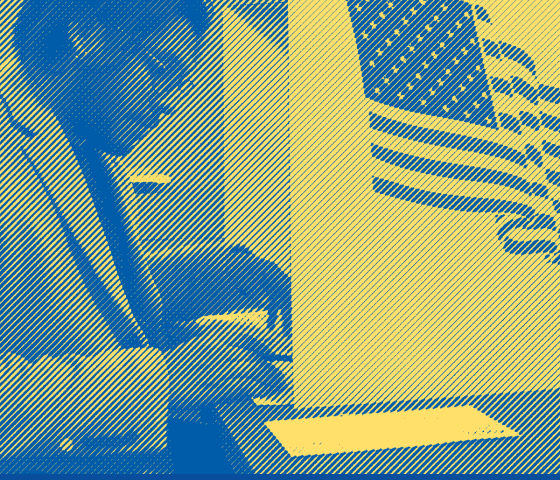Most Iowans can agree that people shouldn’t have to stay in jail just because they aren’t rich.
Yet that is the way our current bail and bond system sometimes works. Whether or not you have to stay in jail too often depends on your ability to pay cash for your freedom, whether you have been put in jail for something as simple as public intoxication or as serious as aggravated assault.
The bail bond system is centuries old—and shows it. It operates on the theory that if you make people who in jail, awaiting trial, pay something akin to a security deposit (a bond) so that they can get out of jail, they’re less likely to hide, run off, and never show up in court. But study after study shows that bonds have almost no effect on that.
Instead, our current bond system can create a devastating chain of events for poor defendants. When bond is set at an amount that the person or their family is unable to pay in full, they typically must turn to a private bonds company. In Iowa, bondspeople usually charge (and keep) an exorbitant fee of 10 percent. Most bondspeople also require that individuals or their families put up collateral, such as a car or other personal property. The bond company then seizes that collateral if the person fails to appear for court dates.
While judges in our state court system are free to forego cash bond altogether—an important safeguard—Iowa has a uniform bond schedule that sets bond amounts when court is not in session. In those cases, like arrests made over the weekend, bonds in Iowa range from $300 for a simple misdemeanor to $2,000 for an aggravated misdemeanor to $25,000 for a Class B felony. In those cases, or in cases where the judge sets bond at an amount beyond the reach of the defendant to pay, that person may sit in jail pre-trial, even when there is no public safety threat and that person doesn’t need cash bail to secure their appearance at a future court date.
As a result of the fees, some people and their families end up repaying bondspeople through high interest installment plans. You can end up trapped into crushing debt, even if you are found not guilty and never missed a single court date. Some people resort to paying for the fees with credit cards.
And if you don’t post bail? You will sit in jail for days, weeks, and in some cases even months while you await trial—even if you are eventually found not guilty. In fact, on any given day in the U.S., 450,000 Americans are being held in a jail, awaiting trial. Nine in 10 are not able to afford bail without relying on a bond company.
Some people end up pleading guilty even though they might have viable defenses and would prefer to go to trial if they were released. But they plead guilty just so that they can get out of jail without having to post bond and can start picking up the pieces of their lives interrupted by jail time.
Not surprisingly, this system disproportionately punishes and targets Black people and other people of color, as well as people who are low-income.
There are better ways towards justice, ways that also protect public safety and save taxpayer dollars. In fact, some cities and counties in Iowa have already pursued important reforms that begin to overhaul the money bail system.
Polk County and three other Iowa counties, for example, are experimenting with an assessment of individuals to see if they are a public safety risk or not and if they are likely to show up for court appointments. This may result in lower cash bail or even no cash bail for many who would otherwise have had higher bail set.
Efforts like these are commendable. But to be clear, in Iowa and nationally, we need to go further. The ACLU supports an end to cash bail altogether. This antiquated system does nothing to keep our communities safer or make justice more fair. Instead, it only penalizes those among us who can’t come up with hundreds or thousands of dollars of cold, hard cash.
